
Himself
Wang Bing is one of the greatest documentary-makers alive today, and his films offer a very insightful overview of the transformations occurring in Chinese society. Here, Dominique Auvray conducts an interview that, in addition to the biographical information, focuses above all on the relationship with things unsaid: Wang Bing attempts to do justice to his theme and the testimonies he’s gathered, but he stumbles over the words, struggling to keep his emotions in check. The pain of tackling history shows through the awkward speech.

Himself
One day my old friend Wang Bing, a Chinese director living in Beijing, called me and suggested to go to Yunnan where he shoots a documentary. I've always been curious about his shooting scene. All along the winter I've followed Wang Bing with my camera from the psychiatric hospital in the nameless suburb city to the jungle near the border to Laos. There are the zona folded in wind and fog. This documentary is the record of that winter, the essay about the people of China, and the adventure-action movie done by friendship.

Director
Liming is a worker district close to Shanghai – the richest city in China. Every year, many young people leave their villages and move there. They are between 17 and 20, all from rural Yunnan Province, 2,500 km west, where the Yangtze River has its source. These young Yunnanese often live at their place of work, in dormitories, unsanitary rooms, or sometimes in small studios. Time and space to meet is missing them. So they communicate through QQ, MSN China. They live as adults but they are teenagers, and the unstable situation, economic pressures, geographical dispersion, burn their innocence and youth. Wang Bing will spend a year with them in Liming: at work, at home, on the Internet, every day of their professional, romantic, and friendly relations. At the end of the year he will follow them in the opposite direction to their province of origin, to be with their family and celebrate Chinese New Year.

Writer
Na província de Gansu, no noroeste da China, estão os restos mortais de inúmeros prisioneiros abandonados no Deserto de Gobi há 60 anos. Designados como ultra-direitistas na campanha anti-direitista do Partido Comunista de 1957, eles morreram de fome nos campos de reeducação de Jiabiangou e Mingshui. O filme nos convida a conhecer os sobreviventes dos campos para descobrir quem eram essas pessoas, as dificuldades a que foram forçadas a suportar e qual acabou se tornando seu destino.

Director of Photography
Na província de Gansu, no noroeste da China, estão os restos mortais de inúmeros prisioneiros abandonados no Deserto de Gobi há 60 anos. Designados como ultra-direitistas na campanha anti-direitista do Partido Comunista de 1957, eles morreram de fome nos campos de reeducação de Jiabiangou e Mingshui. O filme nos convida a conhecer os sobreviventes dos campos para descobrir quem eram essas pessoas, as dificuldades a que foram forçadas a suportar e qual acabou se tornando seu destino.

Sound
Na província de Gansu, no noroeste da China, estão os restos mortais de inúmeros prisioneiros abandonados no Deserto de Gobi há 60 anos. Designados como ultra-direitistas na campanha anti-direitista do Partido Comunista de 1957, eles morreram de fome nos campos de reeducação de Jiabiangou e Mingshui. O filme nos convida a conhecer os sobreviventes dos campos para descobrir quem eram essas pessoas, as dificuldades a que foram forçadas a suportar e qual acabou se tornando seu destino.

Director
Na província de Gansu, no noroeste da China, estão os restos mortais de inúmeros prisioneiros abandonados no Deserto de Gobi há 60 anos. Designados como ultra-direitistas na campanha anti-direitista do Partido Comunista de 1957, eles morreram de fome nos campos de reeducação de Jiabiangou e Mingshui. O filme nos convida a conhecer os sobreviventes dos campos para descobrir quem eram essas pessoas, as dificuldades a que foram forçadas a suportar e qual acabou se tornando seu destino.

Director
Gao Ertai (1931) is an artist, teacher, philosopher who, in the 1950s, was imprisoned in the Jiabiangou Labour Camp. The film works as a diptych with Fengming, the confessional story of another victim of reprisals, and closes a vast film series on those who disappeared.

Sound
Fang Xiuying era um fazendeiro nascido em Huzhou, Fujian em 1948. Ela sofria de Alzheimer durante os últimos oito anos de sua vida. Até 2015, seus sintomas já eram muito avançados e seu tratamento em uma casa de convalescença era ineficaz, então foi interrompido em junho de 2016 e ela voltou para casa. O filme segue sua provação em 2015 e, em 2016, nos últimos dez dias de sua vida.

Screenplay
Fang Xiuying era um fazendeiro nascido em Huzhou, Fujian em 1948. Ela sofria de Alzheimer durante os últimos oito anos de sua vida. Até 2015, seus sintomas já eram muito avançados e seu tratamento em uma casa de convalescença era ineficaz, então foi interrompido em junho de 2016 e ela voltou para casa. O filme segue sua provação em 2015 e, em 2016, nos últimos dez dias de sua vida.

Cinematography
Fang Xiuying era um fazendeiro nascido em Huzhou, Fujian em 1948. Ela sofria de Alzheimer durante os últimos oito anos de sua vida. Até 2015, seus sintomas já eram muito avançados e seu tratamento em uma casa de convalescença era ineficaz, então foi interrompido em junho de 2016 e ela voltou para casa. O filme segue sua provação em 2015 e, em 2016, nos últimos dez dias de sua vida.

Editor
Fang Xiuying era um fazendeiro nascido em Huzhou, Fujian em 1948. Ela sofria de Alzheimer durante os últimos oito anos de sua vida. Até 2015, seus sintomas já eram muito avançados e seu tratamento em uma casa de convalescença era ineficaz, então foi interrompido em junho de 2016 e ela voltou para casa. O filme segue sua provação em 2015 e, em 2016, nos últimos dez dias de sua vida.

Director
Fang Xiuying era um fazendeiro nascido em Huzhou, Fujian em 1948. Ela sofria de Alzheimer durante os últimos oito anos de sua vida. Até 2015, seus sintomas já eram muito avançados e seu tratamento em uma casa de convalescença era ineficaz, então foi interrompido em junho de 2016 e ela voltou para casa. O filme segue sua provação em 2015 e, em 2016, nos últimos dez dias de sua vida.

Director
The town of Zhili accounts for 80 percent of China's output of children's clothes. 15 Hours was shot in August 2016. Zhili, part of the city of Huzhou in the province of Zhejiang, is home to around 18,000 small factories for children's clothing, manned throughout the year by over 200,000 migrant workers. In the 1980s, Zhejiang saw the emergence of a private capital-based garment industry open to any and all operators prepared to invest in flexible business models based on mutual credit or leasing. This film documents one day in the lives of the workers of 68 Xisheng Road in Zhili.

Director
In a fast growing city of East China, migrants have been arriving and living for a dream of a better life. But what they find there is little opportunities and poor living conditions that push people, even couples, into violent and oppressive relations. Xiao Min, Ling Ling and Lao Yeh are some of the characters of this bitter chronicle of today China.
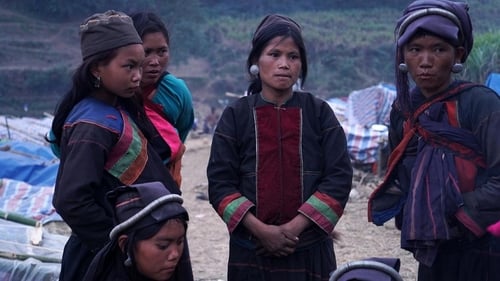
Editor
The Ta'ang or Palaung people, an ethnic minority living in the mountainous area between Myanmar's Kokang region and China's Yunnan province, have historically suffered many forced migrations due to war. When their survival is threatened again in 2015, thousands of them flee across the border. Filmmaker Wang Bing accompanies them and becomes a privileged witness to a human story that is both a modern reportage and a mythical epic.

Director of Photography
The Ta'ang or Palaung people, an ethnic minority living in the mountainous area between Myanmar's Kokang region and China's Yunnan province, have historically suffered many forced migrations due to war. When their survival is threatened again in 2015, thousands of them flee across the border. Filmmaker Wang Bing accompanies them and becomes a privileged witness to a human story that is both a modern reportage and a mythical epic.

Director
The Ta'ang or Palaung people, an ethnic minority living in the mountainous area between Myanmar's Kokang region and China's Yunnan province, have historically suffered many forced migrations due to war. When their survival is threatened again in 2015, thousands of them flee across the border. Filmmaker Wang Bing accompanies them and becomes a privileged witness to a human story that is both a modern reportage and a mythical epic.
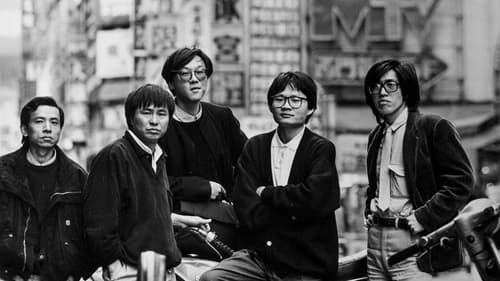
Self
With Taiwan remaining in the grip of martial law in 1982, a group of filmmakers from that country set out to establish a cultural identity through cinema and to share it with the world. This engaging documentary looks at the movement's legacy.

Director
Wang Bing filmed "Traces" in 2005, during the search for locations for his film "The Ditch", in former "labour camps" in the Gobi Desert, where thousand of political prisoners had died of hunger. For the first time, he used 35mm black and white film (a gift from artist Yang Fudong) to capture this landscape condemned to disappear. With no sound, the film records the final, barely visible traces of human lives: bones, clothing, footsteps... Drawing on experimental documentary, this short video echoes other subjects dear to Wang Bing : the story of the campaign against the "rightist elements" in the early 1950s and the reeducation and hard labour camps established before the Cultural Revolution. This film, which was not edited until 2014, was first presented at the Centre Pompidou the same year and then again at the Galerie Chantal Crousel in 2018.

Cinematography
In 2010, while he was filming "Three Sisters" in the mountain of Yunnan province, Wang Bing met two teenagers, Yonggao and Yongjin, whose father, a stonemason, had gone to the city in the hope of finding work. Wang Bing met up with them again in 2014, when they had been reunited with their father after four years in Fumin. For about a month, Wang Bing filmed their daily lives in the single squalid room that was their home. The fixed camera recorded the micro-events that punctuated their days : their father leaving for work, the youngsters themselves waking up, breakfast time, in front of the television, etc.

Editor
In 2010, while he was filming "Three Sisters" in the mountain of Yunnan province, Wang Bing met two teenagers, Yonggao and Yongjin, whose father, a stonemason, had gone to the city in the hope of finding work. Wang Bing met up with them again in 2014, when they had been reunited with their father after four years in Fumin. For about a month, Wang Bing filmed their daily lives in the single squalid room that was their home. The fixed camera recorded the micro-events that punctuated their days : their father leaving for work, the youngsters themselves waking up, breakfast time, in front of the television, etc.

Director
In 2010, while he was filming "Three Sisters" in the mountain of Yunnan province, Wang Bing met two teenagers, Yonggao and Yongjin, whose father, a stonemason, had gone to the city in the hope of finding work. Wang Bing met up with them again in 2014, when they had been reunited with their father after four years in Fumin. For about a month, Wang Bing filmed their daily lives in the single squalid room that was their home. The fixed camera recorded the micro-events that punctuated their days : their father leaving for work, the youngsters themselves waking up, breakfast time, in front of the television, etc.

Editor
Director Wang Bing casts an understanding and non-judgmental eye on the inmates of a decrepit Chinese mental hospital in this eloquent and emotionally impactful documentary.

Director of Photography
Director Wang Bing casts an understanding and non-judgmental eye on the inmates of a decrepit Chinese mental hospital in this eloquent and emotionally impactful documentary.

Producer
Director Wang Bing casts an understanding and non-judgmental eye on the inmates of a decrepit Chinese mental hospital in this eloquent and emotionally impactful documentary.

Director
Director Wang Bing casts an understanding and non-judgmental eye on the inmates of a decrepit Chinese mental hospital in this eloquent and emotionally impactful documentary.

Director
Made for the Venice Film Festival's 70th anniversary, seventy filmmakers made a short film between 60 and 90 seconds long on their interpretation of the future of cinema.

Director
Three sisters aged 10, 6 and 4 have to cope more or less on their own in a remote mountainous region of Yunnan. Terrible poverty in China, shown with gripping compassion by today's best documentary maker. Shorter version of Three Sisters, which premiered in Venice.

Director of Photography
The masterful new documentary from Wang Bing is an intimate, observational portrait of a peasant family who eke out a humble existence in a small village set against the stunning mountain landscapes of China's Yunnan province.

Writer
The masterful new documentary from Wang Bing is an intimate, observational portrait of a peasant family who eke out a humble existence in a small village set against the stunning mountain landscapes of China's Yunnan province.

Editor
The masterful new documentary from Wang Bing is an intimate, observational portrait of a peasant family who eke out a humble existence in a small village set against the stunning mountain landscapes of China's Yunnan province.

Director
The masterful new documentary from Wang Bing is an intimate, observational portrait of a peasant family who eke out a humble existence in a small village set against the stunning mountain landscapes of China's Yunnan province.
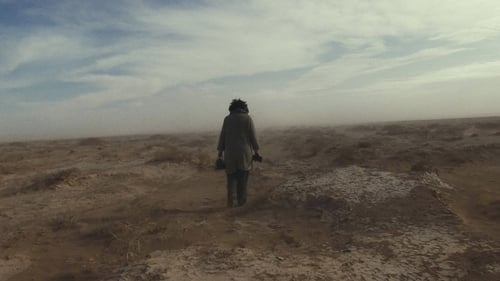
Producer
The film focuses on the suffering of Chinese who were imprisoned in a forced labor camp called Jiabiangou in the Gobi Desert in winter 1960 under Mao Zedong on the grounds that they were "rightist elements". The film tells of the harsh life of these men, who coped with physical exhaustion, extreme cold, starvation and death on a daily basis.

Screenplay
The film focuses on the suffering of Chinese who were imprisoned in a forced labor camp called Jiabiangou in the Gobi Desert in winter 1960 under Mao Zedong on the grounds that they were "rightist elements". The film tells of the harsh life of these men, who coped with physical exhaustion, extreme cold, starvation and death on a daily basis.

Director
The film focuses on the suffering of Chinese who were imprisoned in a forced labor camp called Jiabiangou in the Gobi Desert in winter 1960 under Mao Zedong on the grounds that they were "rightist elements". The film tells of the harsh life of these men, who coped with physical exhaustion, extreme cold, starvation and death on a daily basis.

Cinematography
The character of this story lives far from the worlds of the material and the spirit. He has built his own subsistence conditions. He often goes to the neighboring villages, although he doesn’t communicate with other people. He collects some waste but doesn’t beg. He prowls about the ruins of deserted villages, as an animal or as a ghost. Under double political and economical pressure, most of people are depriving of their last dignity into a world where it exists a lack of material and spirit. But a human being stays a human being. He is looking for reasons to continue to live. —Wang Bing

Producer
The character of this story lives far from the worlds of the material and the spirit. He has built his own subsistence conditions. He often goes to the neighboring villages, although he doesn’t communicate with other people. He collects some waste but doesn’t beg. He prowls about the ruins of deserted villages, as an animal or as a ghost. Under double political and economical pressure, most of people are depriving of their last dignity into a world where it exists a lack of material and spirit. But a human being stays a human being. He is looking for reasons to continue to live. —Wang Bing

Director
The character of this story lives far from the worlds of the material and the spirit. He has built his own subsistence conditions. He often goes to the neighboring villages, although he doesn’t communicate with other people. He collects some waste but doesn’t beg. He prowls about the ruins of deserted villages, as an animal or as a ghost. Under double political and economical pressure, most of people are depriving of their last dignity into a world where it exists a lack of material and spirit. But a human being stays a human being. He is looking for reasons to continue to live. —Wang Bing

Writer
It's 1949 and Tiananmen Square is a mess. Overgrown with weeds and thoroughly dilapidated it looks like hell, but it's where Chairman Mao wants to hold the Founding Ceremony for the People's Republic of China on October 1, 1949. And so TIAN AN MEN recounts the heroism, the struggle and the sacrifices of a People's Liberation Army unit as they...clean up and re-decorate the Tiananmen Gate? (Description by Subway Cinema)

Director
The inhabitants of the village of Xi Yang Tang lead lives of extreme poverty and hardship. The children spend most of their time looking after their little brothers and sisters, and helping their parents with everyday chores

Cinematography
About the Chinese drivers who transport coal from the coal fields to the buyers.

Director
About the Chinese drivers who transport coal from the coal fields to the buyers.

Director
This correspondence between Spanish auteur Jaime Rosales and critical chronicler of contemporary China Wang Bing is divided into three short films each consisting of documentary observations.

Producer
Filmed in the Inner Mongolian portion of the Gobi Desert, this film follows a group of oil field workers as they go about their daily routine.

Director
Filmed in the Inner Mongolian portion of the Gobi Desert, this film follows a group of oil field workers as they go about their daily routine.

Director
An omnibus project examining, well, the state of the world.

Director
Modern China. On a bright sunny day, in a building site, an industrial complex is being deconstructed. Night falls. The ruins of the factory are empty and silent. Phantoms appear, voices are heard, telling their stories…. From the anthology The State of the World.
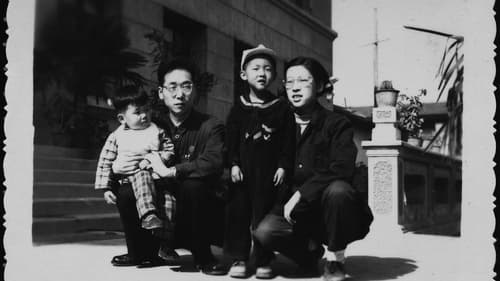
Director
The film consists almost entirely of an interview with the elderly He Fengming, recounting her experiences in post-1949 China.

Director

Director
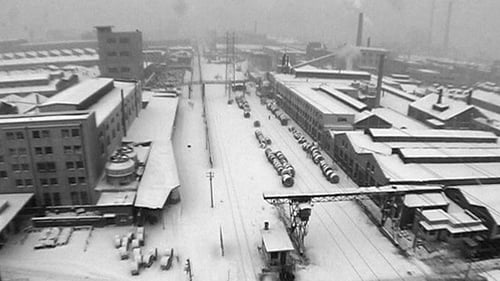
Director of Photography
A detailed look at the gradual decline of Shenyang’s industrial Tiexi district, an area that was once a vibrant example of China’s socialist economy. But industry is changing, and the factories of Tiexi are closing. Director Wang Bing introduces us to some of the workers affected by the closures, and to their families.

Editor
A detailed look at the gradual decline of Shenyang’s industrial Tiexi district, an area that was once a vibrant example of China’s socialist economy. But industry is changing, and the factories of Tiexi are closing. Director Wang Bing introduces us to some of the workers affected by the closures, and to their families.

Producer
A detailed look at the gradual decline of Shenyang’s industrial Tiexi district, an area that was once a vibrant example of China’s socialist economy. But industry is changing, and the factories of Tiexi are closing. Director Wang Bing introduces us to some of the workers affected by the closures, and to their families.

Director
A detailed look at the gradual decline of Shenyang’s industrial Tiexi district, an area that was once a vibrant example of China’s socialist economy. But industry is changing, and the factories of Tiexi are closing. Director Wang Bing introduces us to some of the workers affected by the closures, and to their families.

Director
Four years ago, Kingsley arrived from Nigeria in Guangzhou, China and shared a small room with other Africans in the basement of a commercial building. He converted this modest space into a barber’s shop. Kingsley is keen to start an import and export company and to register it officially in Guangzhou. He works every day until 11 pm then goes to sleep in a chair at McDonald’s. He must also send money to his wife, so despite all his efforts, he is still unable to put aside enough money to register his business. In mid-November 2019, he goes back to Lagos to renew his visa. There, he and his wife rent a small stall in the Ikotun Market in the suburbs. But business is hard. Early in 2020, Kingsley is due to head back to China to continue his quest, but with all travel blocked by the Covid-19 epidemic, he remains stuck in Nigeria. Meanwhile, in Guangzhou, the director meets Evelyn, a Nigerian woman, trying to survive with her 6-year-old daughter and with another one on the way.














